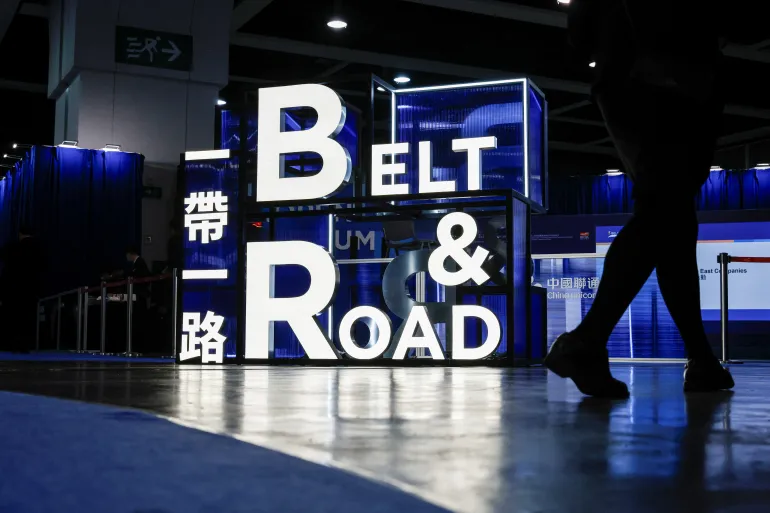After Italy withdraws, China issues a warning against “undermining” the Belt and Road strategy.
The Chinese government has lashed out at the “smearing” of its Belt and Road Initiative (BRI) after its only major Western partner pulled out of the infrastructure project.
Italy was the first Group of Seven (G7) nation to take part in China’s ambitious global plan, but notified Bejing it would withdraw in 2024.
Without addressing Italy directly, China’s Ministry of Foreign Affairs issued a statement on Thursday opposing the “smearing and undermining of cooperation on the joint construction of the Belt and Road”.
Beijing is also opposed to “confrontation and division among camps that causes separation”, ministry spokesperson Wang Wenbin said.
Foreign policy pillar
BRI proposes massive investments in infrastructure such as roads, bridges and ports to recreate the ancient Silk Road trade routes linking Europe and Asia. Spanning more than 100 countries, it is a central pillar of President Xi Jinping’s foreign policy vision.
However, critics have cast the scheme as a vehicle for Beijing to expand its geopolitical influence, including by saddling poorer countries with unsustainable debts. The United States is concerned China could use the project to leverage crucial technologies and infrastructure.
In 2019, Italy became the only G7 nation to sign up for the project, but it has since become a point of controversy among Italian leadership. Prime Minister Giorgia Meloni, who took office last year, advocated leaving the pact, saying it has no clear benefits for Italy.
Italy’s government notified China on December 3 of its plan to exit, reported Italian newspaper Corriere della Sera. However, wary of provoking Beijing, Rome said it still wants strong ties.
“We have every intention of maintaining excellent relations with China even if we are no longer part of the Belt and Road Initiative,” an Italian government source told the Reuters news agency.
“Other G7 nations have closer relations with China than we do, despite the fact they were never in [the BRI],” the source added.













